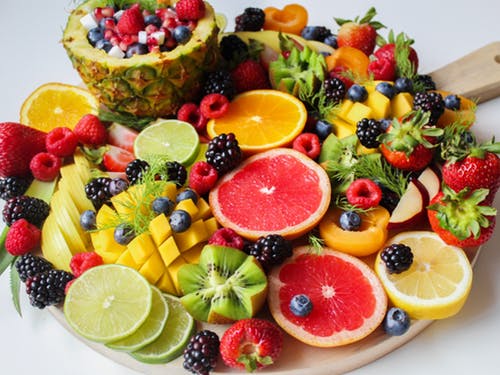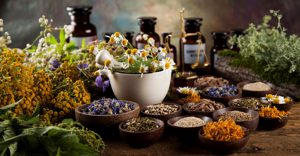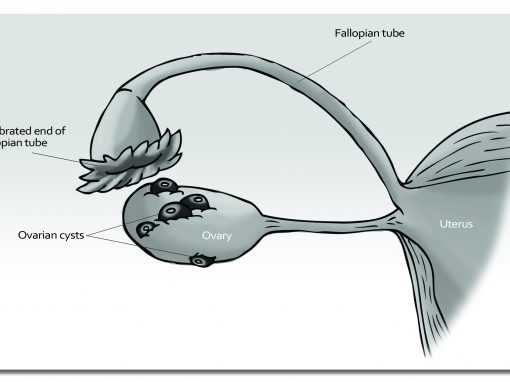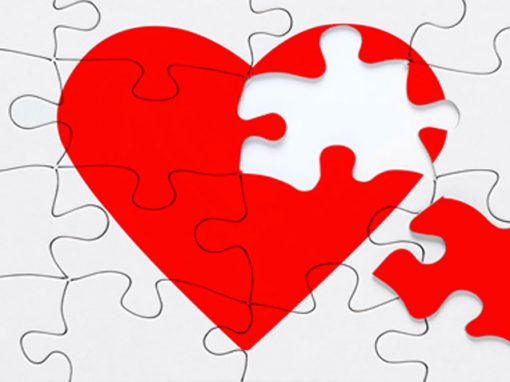‘Let thy food be thy medicine and thy medicine be thy food’
Hippocrates (460-377B.C)
Nutrition means “to nourish, to suckle, to nurse” the modern-day diet is causing us to become overfeed and undernourised. The use of diet as a therapy service is the foundation of Natural Medicine. There is an ever-increasing body of knowledge and scientific validation that supports the use of whole foods and nutritional supplementation in the maintenance of health and treatment of disease. Nutrition also means ‘the processing of light.’
Keto, Paleo, Vegan, Vego, Fruitarian so many different food choices to make? The body is a complex organism that has the ability to heal itself, if only you listen to it and respond with proper nourishment and care. In spite of all the abuse our bodies endure – whether through exposure to environmental toxins, poor nutrition, cigarette smoking, alcohol consumption, or inactivity – they still usually serve us well for many years before signs of illness may start to appear. Even then, with a little help, they respond and continue to function.
The human body is the greatest machine on earth. Nerve signals travel through muscles at speeds as fast as 200 miles per hour. The brain puts out enough electric power to light a 20-watt light bulb. If your leg muscles moved as fast as your eye muscles, you could walk over fifty miles in one day. According to scientists, bone is among the strongest building materials known to mankind; it can withstand nearly as much stretching and bending stress as, and more compression stress than, steel-reinforced concrete can tolerate.
Think of your body as being composed of millions of tiny little engines. Some of these engines work in unison; some work independently. All are on call twenty-four hours a day. In order for the engines to work properly, they require specific fuels. If the type of fuel given is the wrong blend, the engine will not perform to its maximum capacity. If the fuel is of a poor grade, the engine may splutter, hesitate, and lose power. If the engine is given no fuel at all, it will stop. The fuel we give our bodies’ engines comes directly from the things we consume. The foods we eat contain nutrients. These nutrients come in the form of vitamins, minerals, enzymes, water, amino acids, carbohydrates, and lipids. It is these nutrients that sustain life by providing us with the basic materials our bodies need to carry on their daily functions. Individual nutrients differ in form and function, and in the amount needed by the body; however, they are all vital to our health. The actions that involve nutrients take place on microscopic levels, and the specific processes differ greatly. Nutrients have different specific functions; their common function is to keep us going.
Research has shown that each part of the body contains high concentrations of certain nutrients. A deficiency of those nutrients will cause the body part to
malfunction and eventually break down – and, like dominos, other body parts will follow. To keep this from happening, we need a proper diet and appropriate nutritional supplements. Brain function, memory, skin elasticity, eyesight, energy, the ratio of lean-to fat tissue in the body, and overall health are all indications of how well the body is functioning. With the help of the proper nutrients, exercise, and a balanced diet, we may slow the aging process
and greatly improve our chances for a healthier and pain-free & possibly longer – life.
If we do not give ourselves the proper nutrients, we can impair the body’s normal functions causing ourselves great harm. Even if we show no sign of illness, we may not necessarily be healthy. It simply may be that we are not yet exhibiting any overt symptoms of illness. One problem most of us have is that we do not get the nutrients we need from our diets because most of the foods we consume are cooked and/or processed. Cooking at high temperatures and processing destroy vital nutrients and enzymes the body needs to function properly. The organic raw foods that supply these elements are largely missing from today’s diet. Decades of ingesting factor farmed antibiotic overloaded livestock had significantly contributed to resistant bacteria causing serious disease.
‘EAT TO LIVE, NOT LIVE TO EAT’! As the ole saying goes, ‘you are what you eat’, but in actual fact ‘you are what you absorb and assimilate’ and ‘you are what your eating ate.’ The information superhighway the gut-brain connection. The brain perceives our external environment through the five senses and stores
that information in the neurons. The gut is symbiotic to the brain and perceives information of the microscopic world.
The past decade has brought to light much new knowledge about nutrition and its effects on the body, and the role it plays in disease. Phytochemicals, also known as phytonutrients, are one example of the results of this research. These are compounds present in plants that make the plant biologically active. They are not nutrients in the classic sense, but they are what determine a plant’s colour, flavour, and ability to resist disease. Researchers have identified
literally thousands of phytochemicals and also have developed the technology to extract these chemical compounds and concentrate them into pills,
powders, and capsules. These are called nutraceuticals – one of the newer types of modern dietary supplements. Studies by industries such as the CSIRO have identified that due to inappropriate farming methods since colonising Australia, much of the quality topsoils in many areas of the continent have lost massive amounts of vital mineral contents (such as zinc and selenium), approximately 50 – 80 per cent. Therefore, the need for extra quality nutritional supplementation is very essential in these modern times. This is a result of corporations controlling food.
Your body’s nutritional needs are as unique to you as your appearance is. The first essential step toward wellness, therefore, is to be sure you are getting the
correct amounts of the proper nutrients. By understanding the principles of holistic nutrition and knowing what nutrients you need, you can improve the state of your health, ward off disease, and maintain a harmonious balance in the way nature intended. All individuals should take an active part in the maintenance of their health in the treatment of their disorders with the guidance of a health care professional. The more we take it upon ourselves to learn about nutrition, the better prepared we will be to take that active role. The human body is an amazing machine; approximately 99 per cent of our bodies’ cells renew every year. The nutrients that we choose to fuel this machine of ours will have tremendous bearing on the type of body model we will have each year. The most important nutrient is the one your body is most deficient in.
An analogy of this may be an example of the type of car you wish to drive. If you want an old clunker standard sedan then feed your body poorly, but if you want a top-of-the-line sports model (within reason) then your nutrient requirement needs much more specific attention. There are various causes and explanations for infertility. One of the most basic is an overall deficiency in nutrients that adversely affects the reproductive system. For instance, the endocrine glands, which secrete and control hormones, depend on a correct supply of nutrients especially trace minerals. Nutritional deficiencies and harmful chemicals can harm the eggs and sperm even before conception occurs.
Nature teaches us many lessons in the area of nutrition and fertility. For example, in order for a plant seed to grow, the soil needs to be rich in all the nutrients necessary for the plant’s growth. Mineral deficient soils produce either no crops or below par crops (plants can grow with only 3 minerals). By adding essential minerals to barren soil, growers can make the soil fertile again. There are 60 known essential minerals vital for life, after 1882 when Thomas Edison switched on the first commercial electric generator started a dramatic shift in the way people cooked our food. Traditional firewood burning cooking was replaced by electrical cooking equipment turned us away from the way humans have essentially cooked food for thousands of years. The wood ash left over after fire cooking (depending on the soil the wood was grown in) was generally extremely dense in plant minerals. This ash was repurposed by being adding back into the gardens to help grow robust healthy mineral dense food.
Upgrade the way you perceive food, the days of eating a piece of meat and three basic veggies is old news. The discovery or more accurately re-discovery of the super foods and super herbs that our planet has to offer are incredibly dense in life giving nutrients, far beyond our tradition diets. There is a paradigm shift; you now can eat and drink your own medicines, taking self-health care to the next level. The understandings of nutrition and phyto chemistry are constantly advancing, but for many are still stuck with past social dogma of tradition and behavioural routine.
This revolution in thinking will greatly expand our currently limited food repertoire helping bio-hack our way to better health and feed our future generations for many, many years to come. The new understanding of the microbiome is a huge game changer of our understanding how our health is dependent on the interactions with the internal and external eco-environments. If nutrients are deplented from the soil leads to a mono-nutrient food chain, less nutrients are available to the bacteria, leading to less availability nurtrients to plants and animals, leading to less available nutrients to the gut bacteria, leading to enzymatic dysfunction, which leads to less nutrients available to us. Every micro-organism has a role in the eco-system, there is a reason for life. Having adequate hydrochloric acid (HCl) digestive enzyme production is important in helping the body to self-heal. It is made in the liver and released in the stomach and requires good hydration. The body should produce ideally 4000mg per meal.
Herbal Medicine
The Gift from Mother Nature spicing things up Spirit within the plants, “Life’s a garden, dig it”!
There is currently a renaissance occurring in the appreciation of plants as medicinal agents. Public demand for access to natural remedies and alternatives in treatment for health concerns is increasing at a massive rate. This is an area within the broad spectrum of medicine where natural medicines are at the forefront of the health revolution. Herbs and botanical plants have provided mankind with medicines from the beginning of civilisation. Throughout history, various cultures have handed down accumulated knowledge of medicinal plant use to successive generations. This vast body of information serves as the basis for much of traditional medicine today.
Phytomedicine is a more recently used term to describe whole-plant preparations of herbal medicines, rather than just using the single isolated (usually synthetically created) chemical compounds that is characteristic of orthodox medical drug preparations. By utilising the whole extract of the plant rather than an isolated part of it, herbalists believe there is a more synergistic and counterbalancing effect with the other active ingredients contained within the plant that nature has provided.
Approximately 25 to 50 per cent of all prescription drugs contain ingredients isolated from herbs and plants. There are estimated between 250,000 to 500,000 plants remaining on the earth today (the number varies depending on whether subspecies are included). The Amazon forest alone is estimated to have over 65,000 plus species of plants and less than 3% have been studied for their medicinal value. This illustrates the need for modern science to turn a wider attention to the plant world to investigate and seek the answers to our growing health care questions. Considering 121 prescription drugs come from only 90 species of plants, 74 per cent of these were discovered following up folklore claims. Approximately 25 per cent of all fertility prescription drugs are still derived from trees, shrubs and herbs. Due to the massive daily loss of forestation due to industry, it is vital that more research and investigation be focused on locating and regenerating threatened varieties of plants. Logic would suggest that there might still be more invaluable therapeutic treasures out there?
The World Health Organisation (WHO) has estimated that two thirds of the world population still usesuse traditional complementary therapies as their primary treatment protocol for health complaints in comparison with orthodox medicine (allopathy). The use of herbal/phyto medicines makes up a very large
proportion of this number. Herbs are the world’s original pharmaceuticals; modern medicine today would not have evolved without botanical medicine first showing us the way. All animal life on earth has evolved from a food chain based on plants. Humans, like other animals, eat plants and other animals in order to nourish and replace body cells and create life force. This evolution within the living surrounding of other plants and animals means that human beings are biologically compatible with plants because they derive from the same source.
All the nutrient ingredients necessary to create and maintain life in its healthiest form are contained within living matter. Life is derived from and maintained by chemical reactions and life is designed to be health. “And God said, Behold, I have given you every herb bearing seed, which is upon the face of the earth, and every tree, in the which is the fruit of a tree yielding seed; to you it shall be for meat.” Genesis 1:29 King James Bible version. “He causeth the grass to grow for the cattle and herbs for the service of man: that he may bring forth food of the earth.” Psalms 104:14 King James Bible version.










